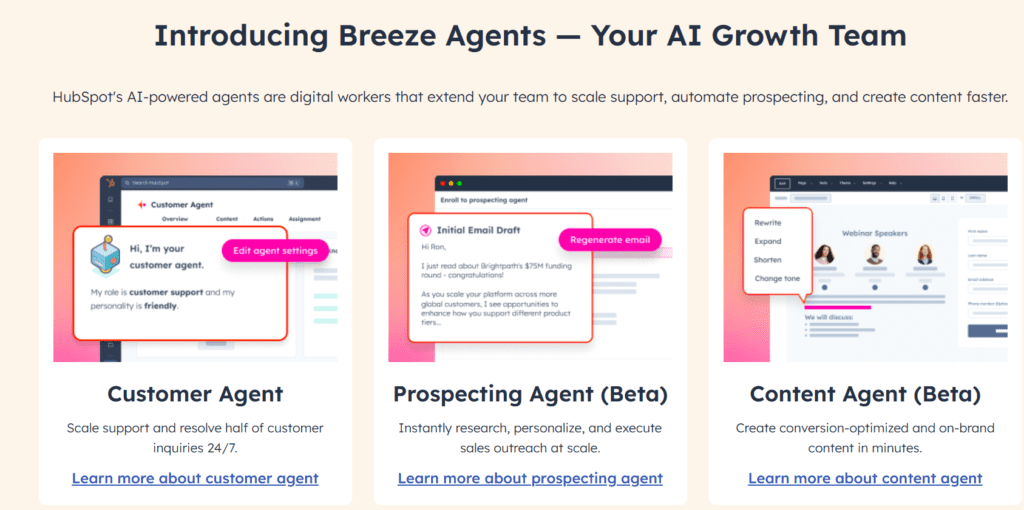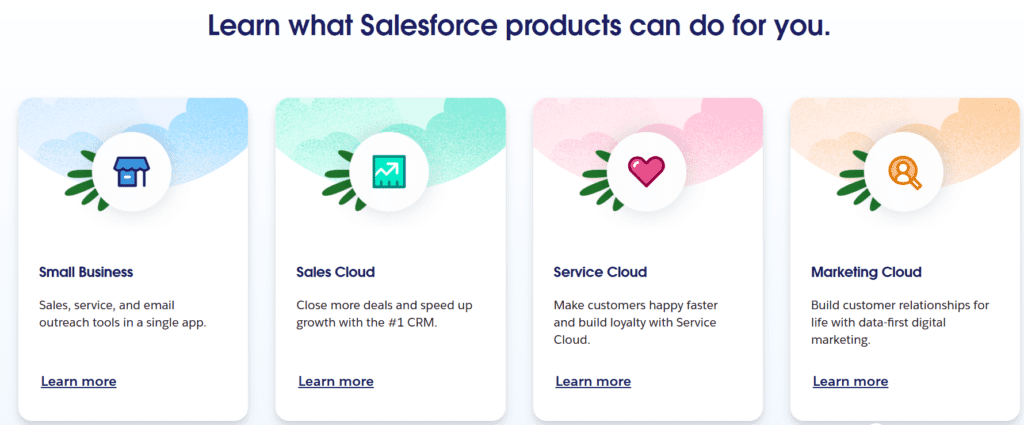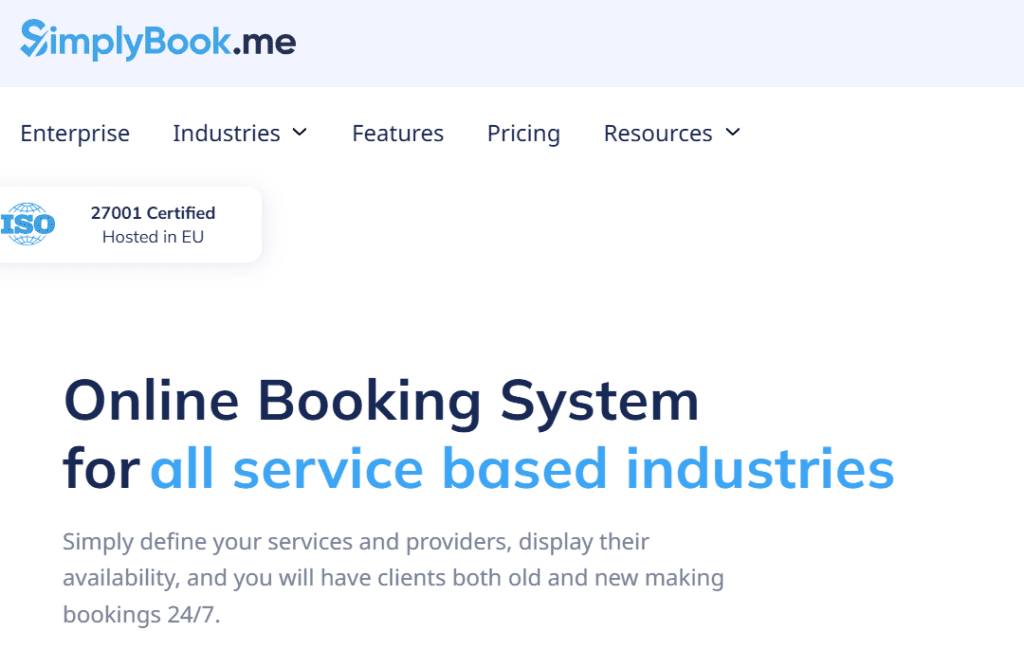Key highlights
- Small business automation helps save time, reduce costs and increase accuracy by streamlining repetitive tasks.
- Workflow, marketing, sales, customer service and finances are some of the top areas where automation can have the most impact.
- Using tools for workflow automation for small business can improve team collaboration and task management.
- Marketing automation for small business helps you reach more customers with less effort and track campaign performance easily.
- Automation doesn’t replace jobs—it frees up your team to focus on high-value, strategic work.
Introduction
Running a small business means wearing more hats than you ever expected. You’re the marketer, the accountant, the customer service rep and everything in between. At first, it feels like a badge of honor. You’re in control, building something from the ground up. But over time, this juggling act can become overwhelming.
Tasks start slipping through the cracks. You’re answering emails late at night, manually tracking invoices and constantly trying to stay on top of everything. The passion that pushed you to start your business starts to get buried under a mountain of daily admin work.
That’s where small business automation comes in. It reduces repetitive tasks, minimizes human errors, and streamlines daily operations Whether you’re running things on your own or leading a team, automation helps you work smarter, not harder.
The result? More efficiency, fewer headaches and a happier and motivated team.
In this guide, we’ll explore the benefits of automation, how to implement it and the best tools available to help you along the way.
What is small business automation?
Small business automation refers to using technology to perform business tasks faster, easier and more accurately with minimal human intervention.
It saves time, reduces errors and boosts efficiency, letting businesses focus on growth and customer satisfaction.
For example, you can automate email follow-ups, customer data, appointment bookings, invoice generation or even customer support responses. This not only streamlines your workflow but also minimizes mistakes and boosts productivity.
According to Salesforce, small and midsize businesses (SMBs) that used automation had a 1.6x increase in brand growth than those that didn’t. This makes automation a smart investment for long-term success.
What are the benefits of small business automation
Small business owners often juggle with limited resources. and staffing, which makes managing daily tasks a challenge. Automated systems help overcome these hurdles by streamlining operations, reducing errors and boosting productivity. This allows businesses to work smarter and achieve more with less effort.
Also read: 16 Productivity Tools Every Blogger Needs to Succeed | Bluehost
Below are some of the most impactful benefits of automation for small businesses:
1. Boosts accountability and transparency
Automation helps define clear roles and responsibilities by assigning specific tasks within automated workflows. Each team member knows exactly what they are responsible for, ensuring accountability and reducing confusion.
Transparent processes make it easier to track who is handling what and identify areas where improvements are needed.
2. Improves productivity and efficiency
Repetitive and time-consuming tasks often limit a small business’s ability to scale. Automation streamlines processes such as email follow-ups, invoicing, data entry and scheduling.
By reducing manual workload, your team can focus on higher-priority work, leading to faster results and improved efficiency.
3. Enhances employee morale and reduces burnout
Performing repetitive tasks daily can be frustrating and demotivating. Automating these tasks frees employees to focus on creative, engaging and value-driven activities.
Happier employees are more productive, experience less burnout and contribute positively to workplace culture.
4. Reduces human errors and improves accuracy
Even the most skilled employees can make mistakes, especially when handling repetitive tasks under pressure.
Automation ensures consistency and accuracy by reducing human intervention in critical processes like invoicing, data collection and order processing.
This minimizes costly errors and enhances the quality of your business operations.
5. Strengthens communication and team collaboration
With automation, internal communication and project collaboration become more streamlined. Automated notifications, status updates and progress tracking help teams stay aligned and informed.
Whether updating customers or coordinating internally, automation ensures timely and efficient communication.
6. Helps control and reduce operational costs
One of the biggest advantages of automation is cost reduction. By improving efficiency and minimizing errors, automation helps businesses cut unnecessary expenses.
It also reduces the need for overtime or additional staff, helping you get more done with fewer resources. According to Forrester, automation could lower operating costs by nearly 90%.
What are the types of small business automation
Now that you understand the benefits of automation, let’s explore what tasks your small business can automate.
Here are seven essential processes your small business can and should use automation for:
| Type of automation | Purpose | Tools |
| Workflow automation | Streamlines internal processes, saving time and reducing errors. | Zapier, Integromat, Monday.com |
| Marketing automation | Automates marketing tasks to reach more customers efficiently. | HubSpot, Mailchimp, ActiveCampaign |
| Sales automation | Helps manage leads, follow-ups and conversions more efficiently. | Salesforce, Pipedrive, Zoho CRM |
| Process automation | Automates repetitive business processes to improve efficiency. | Kissflow, ProcessMaker, Smartsheet |
| Customer service automation | Enhances customer service through AI and chatbots. | Zendesk, Freshdesk, Intercom |
| Scheduling and appointment automation | Simplifies booking and managing appointments. | Calendly, Acuity Scheduling, Book Like A Boss |
| Social media automation | Automates social media posting and engagement. | Buffer, Hootsuite, Sprout Social |
| Hiring and recruitment automation | Streamlines the hiring process, from job posting to interviews. | Workable, Lever, Greenhouse |
| Financial automation | Automates financial tasks like invoicing, payroll and bookkeeping. | QuickBooks, Xero, Wave Accounting |
Small business automation offers a variety of tools to simplify and streamline key functions. Now let’s take a look at all automation types in detail.
1. Workflow automation for small business
Your workflow includes the specific tasks required to achieve your business goals. These can span everything from lead generation and communication to marketing efforts and sales activities.
As your business grows, managing all of this manually becomes time-consuming. That’s where workflow automation comes in.
It works best with project management platforms that visualize progress, assign roles and manage cross-department dependencies.
Typical tasks automated:
- Internal approvals (expenses, leave requests, purchase orders)
- Project handoffs and task assignments
- Report generation and status updates
- Notifications and deadline reminders
Benefits: Fewer delays, clearer task ownership, faster project execution.
Recommended tools: Zapier, Asana, Monday.com, ClickUp
2. Marketing automation for small business
Marketing automation helps you consistently engage your audience without having to manually manage every campaign. It enables you to create automated customer journeys, send personalized emails and nurture leads on autopilot.
Also read: 9 Tips to Optimize Your Lead Capture Forms for More Conversions
Typical tasks automated:
- Email marketing (welcome emails, follow-ups, cart abandonment)
- Automated promotions based on customer behavior
- Lead nurturing and segmentation
- Social media ad campaigns
Benefits: Increased engagement, higher conversion rates and improved customer relationships.
Recommended tools: Mailchimp, HubSpot, ActiveCampaign

3. Small business sales automation
Sales automation simplifies lead handling, customer follow-ups and proposal creation. It reduces the time sales teams spend on admin tasks and helps them focus on closing deals.
Typical tasks automated:
- CRM lead tracking and scoring
- Automatic follow-up reminders
- Proposal and quotation generation
- Meeting scheduling with prospects
Benefits: Better sales processes, lead management, faster follow-ups and improved sales performance.
Recommended tools: Salesforce, Pipedrive, Zoho CRM

4. Process automation for small business
This type of automation helps you handle core business operations behind the scenes, from inventory management to employee onboarding. Small business process automation is essential for keeping your business organized and running smoothly.
Typical tasks automated:
- Inventory updates and low-stock alerts
- Automated invoice generation and payment reminders
- Document management (contracts, proposals, agreements)
- Employee onboarding workflows (document collection orientation tasks)
Benefits: Reduced paperwork, faster processing and smoother daily operations.
Recommended tools: QuickBooks, Gusto, Kissflow
5. Customer service automation
As a business focused on brand growth, providing seamless customer service is key.
Replying to every client can be exhausting, but customer support automation can simplify it for your small business. These tools help streamline customer interactions and improve response times.
Also read: Better Customer Service Means Better Conversions
Typical tasks automated:
- Automated chatbots for FAQs
- Helpdesk ticket creation and assignment
- Case management and customer feedback collection
- Auto-responses for common questions
Benefits: Faster customer response times, reduced workload on support staff and better customer experience.
Recommended tools: Zendesk, Freshdesk, Intercom
6. Scheduling and appointment automation
Managing meetings, calendars and reminders manually can distract you from other important tasks and overwhelm your schedule.
That’s a fast track to burnout, missed opportunities and a loss of trust in your brand. To prevent this, set up scheduling automation for your small business. Automating meetings helps streamline both the preparation and follow-up process.
Typical tasks automated:
- Online appointment bookings
- Automatic reminders and confirmations
- Rescheduling and cancellation management
Also read: Best WordPress Appointment Plugins to Streamline Online Booking and Reservations on Your Website
Benefits: Fewer no-shows, improved customer convenience and reduced admin work.
Recommended tools: Calendly, Acuity Scheduling, SimplyBook.me

7. Social media automation
Using social media for business is more than simply uploading a new post day in, day out.
Also read: Advantages of Social Media Marketing + How to Use It
By setting up automation, you can build a solid marketing strategy and maintain a consistent brand presence.
Also, you can manage your business pages, reach the right audience, engage customers and grow your account faster.
Typical tasks automated:
- Scheduling social media posts across multiple platforms
- Content curation and suggestions
- Automated reporting and performance tracking
Benefits: Consistent posting, timesaving and better social media analytics.
Recommended tools: Buffer, Hootsuite, Later
8. Hiring and recruitment automation
Hiring isn’t a one-step process—it involves multiple touchpoints, from posting to onboarding. Creating an efficient hiring process involves many steps and recruitment automation is the best solution for your small business.
You can automate the entire process, making it faster and more organized, from job postings to interviews, recruitment and onboarding.
Typical tasks automated:
- Resume filtering based on skills and keywords
- Interview scheduling with automated reminders
- New hire onboarding (paperwork, training assignments)
Benefits: Reduced hiring time, better candidate experience and streamlined onboarding.
Recommended tools: Workable, BambooHR, Lever
9. Financial automation
From receiving payments to settling invoices, you need accounting automation for your small business. This prevents costly errors that could disrupt your cash flow
Without automation, it’s easy for errors to slip in, leading to cash flow issues and wasted hours on manual data entry.
Automating your financial processes not only saves time but also protects you from costly mistakes and potential fraud.
Typical tasks automated:
- Bookkeeping and financial reporting
- Invoice creation and payment tracking
- Automated payroll and tax calculations
- Expense tracking
Benefits: Reduced financial errors, time savings and better financial visibility.
Recommended tools: QuickBooks, Xero, FreshBooks
How to implement small business automation
Automation doesn’t have to be overwhelming. Follow these simple steps to get started the right way.
1. Identify bottlenecks
Look at your daily operations. Are you sending the same emails over and over? Manually logging payments? These are signs of processes that should be automated.
2. Choose areas to automate first
Start with easy, repetitive tasks that don’t involve complex decisions, like scheduling, invoicing or lead follow-ups.
3. Select the right small business automation tools
Choose tools that are easy to use, fit your budget and integrate with your existing systems. If you’re unsure, start with free versions and scale as needed.
4. Train your team
Even the best tool won’t deliver results if your team doesn’t know how to use it. Offer short training sessions or demos to get everyone up to speed.
5. Measure results
Track key metrics like time saved, error reduction or increased sales. Use those insights to refine your workflows and justify further automation investments.
What mistakes to avoid in small business automation
Even with the best tools, automation can backfire if it’s not implemented correctly. Here are some common pitfalls to watch out for:
1. Automating without understanding the process
Jumping straight into automation without mapping out your current workflow can lead to confusion and inefficiency. Always review and streamline the process before automating it.
2. Choosing tools that don’t integrate
If your automation tools don’t integrate well with your platforms (CRM, accounting, website), you’ll duplicate work or lose valuable data.
3. Automating too much, too fast
Trying to automate everything at once can overwhelm your team and cause more problems than it solves. Start with small, high-impact tasks and scale gradually.
4. Leaving your team out of the loop
Automation works best when your team is on board. Skipping training or not getting input from the people who actually use the tools can lead to resistance and mistakes.
5. Set-it-and-forget-it mindset
Automation isn’t a one-time task. Processes change, tools update and customer needs evolve, your workflows should too.
What are the tips for small business automation?
Once your automation is in place, the real magic happens through regular tweaks and enhancements. Here’s how to keep things running smoothly:
1. Review your workflows regularly
Set a schedule (quarterly or bi-annually) to review what’s working and what needs adjustment. Look for bottlenecks or areas that still feel manual.
2. Track performance metrics
Measure time saved, error reduction, conversion rates or customer response times. Use those insights to justify automation costs and guide optimization.
3. Stay updated on new features
Automation tools often release new features that can improve efficiency or expand functionality. Keep an eye on product updates or subscribe to newsletters.
4. Encourage team feedback
Your team uses these tools daily, listen to their feedback and suggestions. They can often spot inefficiencies or come up with ideas for better workflows.
5. Scale your automation as you grow
As your business expands, revisit areas like customer onboarding, inventory management and analytics. Automation can support each stage of your growth journey.
Final thoughts on small business automation
Adopting automation is one of the smartest decisions a small business can make. It’s not just about saving time, it’s about unlocking the freedom to focus on what really matters- growth, strategy and customer experience.
You don’t need a massive tech stack or big budget to get started. Focus on one or two time-consuming tasks, choose a simple tool and automate that. Small changes lead to big results.
Since your website is the heart of your digital business, it should fully support your automation goals. With Bluehost, you get reliable, automation-friendly hosting that integrates with CRMs, marketing tools, payment systems and more.
Whether managing a WordPress site, online store or building your digital presence, we provide the performance and flexibility to grow.
Ready to build a smarter business?
Explore Bluehost hosting and power up your automation journey today.
FAQs
Small business automation refers to using software tools and technology to handle repetitive tasks and processes. This can include things like email marketing, customer follow-ups, invoicing, payroll and more.
Automation helps small businesses save time, reduce manual errors, cut operational costs and improve customer service. It allows teams to focus on more strategic, high-value tasks rather than day-to-day admin work.
Common tasks include:
1. Sending welcome emails or follow-ups
2. Posting on social media
3. Tracking invoices and expenses
4. Scheduling meetings
5. Managing customer service through chatbots
Top tools include:
1. Zapier and Make for workflows
2. Mailchimp and HubSpot for marketing
3. QuickBooks and FreshBooks for finance
4. Pipedrive and Zoho CRM for sales
5. BambooHR and Gusto for HR
Yes. Many tools offer free plans or low-cost tiers designed specifically for small businesses. You can start small and upgrade as your needs grow.
No, automated processes are meant to support your team—not replace them. It handles repetitive tasks so your employees can focus on more creative, strategic work that drives business growth.




Write A Comment